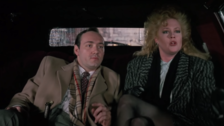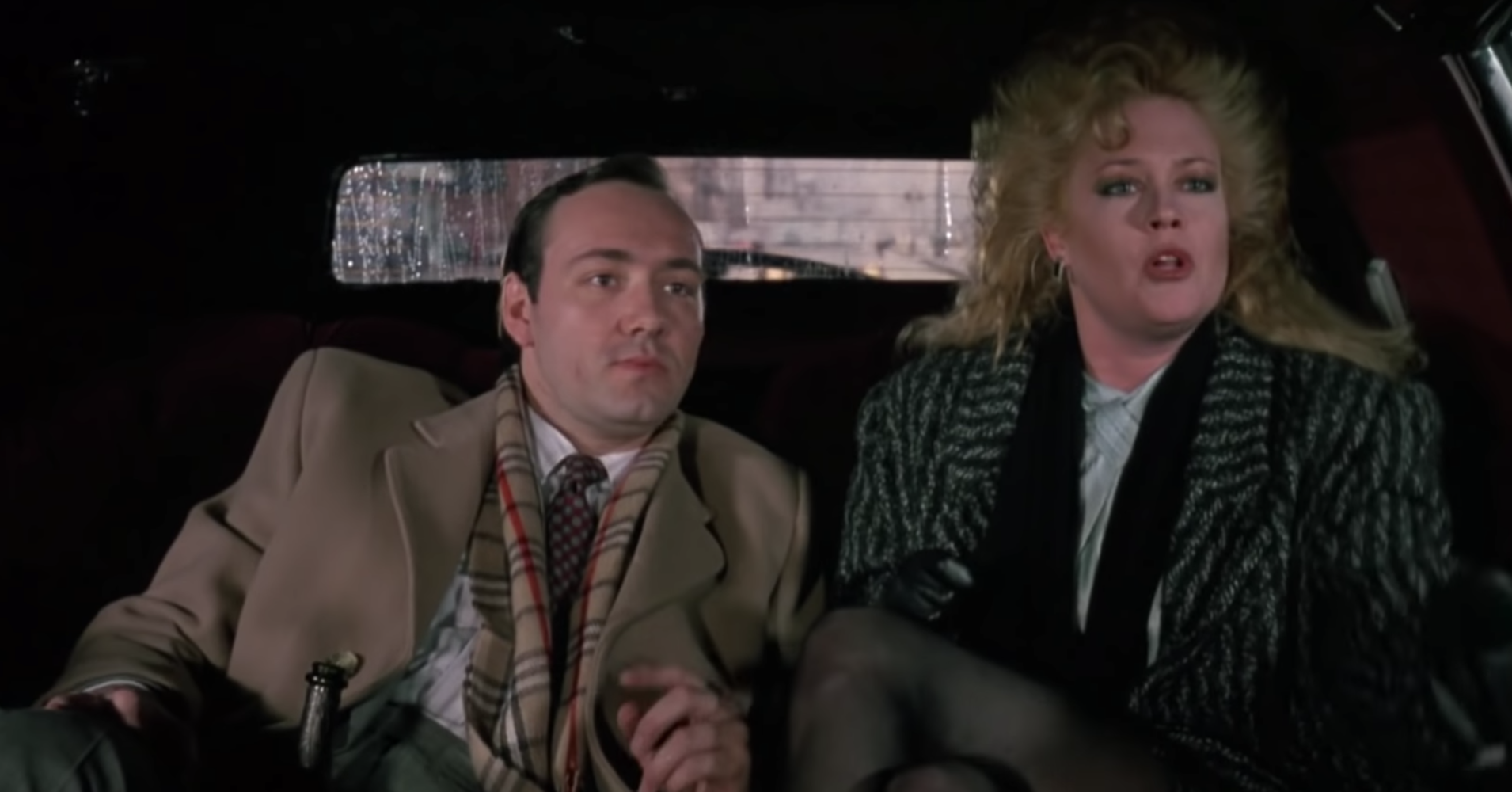[ad_1]

Happily ever after doesn’t look like it used to. And neither does Kevin Spacey. Welcome To HuffPost’s Rom-Com Week.
Decades before Kevin Spacey was accused of sexual harassment and assault by more than 15 men, he played a workplace sexual harasser in a romantic comedy. Is this what one would call… ironic? Jarring? Fitting? All of the above?
This week, that aforementioned rom-com, “Working Girl,” turns 30 years old.
“Working Girl” is a 1988 workplace comedy starring Melanie Griffith as Tess McGill, a Staten Island secretary who has “a mind for business” and yearns to be taken seriously and advance in the financial world. Co-starring Harrison Ford as Jack Trainer (a handsome mergers and acquisitions kind of gentleman who, duh, ends up winning the heart of our leading lady) and Sigourney Weaver as Katharine Parker (a nearly 30-year-old ball-busting megabitch, and the only hypersuccessful woman in the film), it’s a surprisingly ahead-of-its-time look at workplace sexual harassment and the way that it hamstrings women’s ability to succeed in male-dominated industries.
The movie opens on the New York City skyline, Lady Liberty front and center. Tess and her best friend (Joan Cusack forever!) are taking the Staten Island Ferry into Manhattan, en route to their secretarial jobs on Wall Street on what happens to be Tess’ 30th birthday. From the moment she enters her frenetic office ― full of suited white men self-importantly tapping on their 1988 computers and barking into their desk phones ― it’s clear that Tess is both whip-smart and criminally underappreciated. She does great work, but still can’t get accepted into a special program that would accelerate her career. The men she works with (Oliver Platt and James Lally) talk down to her, call her “Tessie,” and even try to set her up with their sleazy colleague, “Bob in arbitrage,” under the guise of a job opportunity.
And who plays sleazy, smarmy, handsy, cocaine-snorting Bob? Kevin fuckin’ Spacey.
Bob is what we’d call Part Of The Problem. What is supposed to be a networking meeting turns out to be a limo ride to a hotel. When Bob suggestively talks about the room he’s booked on the company dime, inhales drugs and unleashes a bottle of champagne all over Tess, Tess does a dance that is familiar to many women who’ve slogged through a workday surrounded by a majority of men. She feigns deep professional interest while keeping her distance. She’s warm, smiley, and asks questions with bright eyes as though there’s never seen anything more fascinating in the world than what Bob does in arbitrage. Then things escalate ― Bob tries to kiss the spot on her chest where he spilled that aforementioned champagne, and tricks her into watching a pornographic film on the limo TV. The jig is up: Bob was never looking to advance Tess’ career. He was hoping to fuck her. Her skills and brains were never of value to him, or to her other male colleagues, apparently.
Griffith reflected on this scene in an oral history of “Working Girl” for The Hollywood Reporter, referring to Spacey’s role and his current status as a serial sexual abuser as a “strange coincidence.” (It’s easy to wonder if Spacey ever made the connection between the behavior he portrayed in this film and the way he acted outside of it.)
“In ‘Working Girl,’ I jump out of the car because of his [character’s] sexual advances,” she said. “There are millions of women who had that experience, and that’s why so many women love that movie and to this day tell me how we changed their lives.”
Thirty years later, these scenes still feel frighteningly fresh. Some progress has been made, sure, or perhaps the harassment is just less overt; more microaggressive comments and fewer back-seat pornos. But even millennial women in finance report a near-constant stream of demeaning comments, objectification and discrimination, leading some of them to opt out of the industry permanently.
As Oliver Platt put it to The Hollywood Reporter, “I knew I was playing a pig. Kevin Spacey’s character and I were the pigs, sort of the inciting #MeToo’ers. Here’s the sad thing: Those pigs were a dime a dozen on Wall Street. I thought I was playing a rare pig, but what we’ve discovered is that there was nothing unusual about that guy at all.”
[ad_2]
Source link

